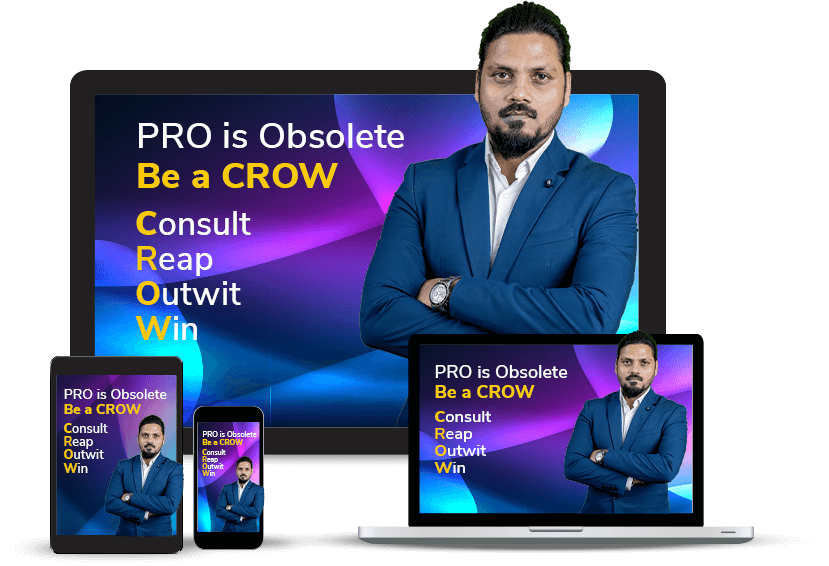
Why Digital Marketing is Important for Small Business (2024)
Are you a small business owner navigating the fast-paced digital landscape? Have you ever pondered the unprecedented challenges and opportunities that come with today’s technology-driven world? As consumer behavior continues to evolve, how can small businesses harness the power of digital marketing to not only survive but thrive in this competitive marketplace?
Join us as we explore the shifting dynamics of brand-consumer interactions and discover why digital marketing is no longer just an option but a fundamental necessity for small businesses.
The Digital Landscape for Small Businesses
The internet has leveled the playing field, allowing small businesses to compete with larger corporations in ways that were previously impossible. However, this also means that the competition for consumer attention is fiercer than ever. To stand out, small businesses need to leverage the power of digital marketing effectively.
Key Statistics
- According to a 2023 report by Statista, global digital advertising spending is projected to reach $681 billion by 2025.
- HubSpot’s 2024 Marketing Industry Trends Report reveals that 64% of small businesses are increasing their digital marketing budgets.
These numbers underscore the growing importance of digital marketing in the business world. But what exactly makes it so crucial for small businesses?
5 Reasons Digital Marketing is Essential for Small Businesses
1. Cost-Effective Reach
Traditional marketing methods like print ads, TV commercials, and billboards can be prohibitively expensive for small businesses. Digital marketing, on the other hand, offers a more affordable way to reach your target audience.
Case Study
A local bakery in Austin, Texas, shifted its marketing budget from local newspaper ads to targeted Facebook and Instagram campaigns. The result? A 300% increase in website traffic and a 150% boost in in-store visits, all while spending 40% less on marketing.
2. Targeted Advertising
One of the most powerful aspects of digital marketing is the ability to target specific demographics, interests, and behaviors. This precision allows small businesses to make the most of their marketing budgets by focusing on the most likely customers.
“In the digital age, spray-and-pray marketing is dead. Targeted digital campaigns allow small businesses to speak directly to their ideal customers, maximizing ROI and minimizing wasted ad spend.” – Neil Patel, Digital Marketing Expert
3. Measurable Results
Unlike traditional marketing methods, digital marketing provides real-time, measurable results. This data-driven approach allows small businesses to quickly identify what’s working and what’s not, enabling them to adjust their strategies on the fly.
Key Metrics to Track
- Website traffic
- Conversion rates
- Engagement rates (likes, shares, comments)
- Email open and click-through rates
- Return on ad spend (ROAS)
4. Building Brand Awareness
For small businesses, establishing a strong brand presence is crucial. Digital marketing offers various channels to build and reinforce your brand identity, from social media platforms to content marketing.
Bonus Tip
Consistency is key in brand building. Ensure your messaging, visuals, and values are aligned across all digital platforms.
5. Improved Customer Engagement
It allows for two-way communication between businesses and customers. This interaction can lead to improved customer satisfaction, loyalty, and ultimately increased sales.
Scientific Data
A study published in the Journal of Interactive Marketing found that businesses that engage with customers on social media see a 20-40% increase in customer lifetime value.
5 Essential Digital Marketing Strategies for Small Businesses
Now that we’ve established why digital marketing is crucial, let’s explore some key strategies that small businesses can implement:
1. Search Engine Optimization (SEO)
SEO is the process of optimizing your website to rank higher in Search Engine Results Pages (SERPs). This is crucial for increasing organic traffic to your site.
Key SEO Tactics
- Keyword research and optimization
- Quality content creation
- Technical SEO (site speed, mobile-friendliness)
- Link building
Book Recommendation
“SEO for Growth: The Ultimate Guide for Marketers, Web Designers & Entrepreneurs” by John Jantsch and Phil Singleton
2. Content Marketing
Creating valuable, relevant content helps establish your business as an authority in your industry while attracting and engaging potential customers.
Content Types to Consider
- Blog posts
- Infographics
- Videos
- Podcasts
- Ebooks and whitepapers
3. Social Media Marketing
Social platforms offer a direct line of communication with your audience, allowing you to build relationships and drive engagement.
Platform Selection Tip
Focus on the platforms where your target audience is most active. For B2B businesses, this might be LinkedIn, while B2C companies might find more success on Instagram or TikTok.
4. Email Marketing
Despite being one of the oldest digital marketing tactics, email remains one of the most effective. It allows for personalized communication and nurturing of leads.
Email Marketing Best Practices
- Segment your email list
- Personalize your messages
- Use compelling subject lines
- Include clear calls-to-action (CTAs)
5. Pay-Per-Click (PPC) Advertising
PPC allows you to place ads on search engines and social media platforms, paying only when someone clicks on your ad.
PPC Platforms to Consider
- Google Ads
- Facebook Ads
- LinkedIn Ads
- Instagram Ads
Overcoming Digital Marketing Challenges
While the benefits of digital marketing are clear, small businesses often face challenges in implementation. Here are some common obstacles and how to overcome them:
1. Limited Budget
Solution
Start small and focus on one or two channels that align best with your business goals. As you see results, reinvest in expanding your digital marketing efforts.
2. Lack of Expertise
Solution
Invest in training for yourself or your team. Alternatively, consider hiring a consultant or agency to guide your strategy.
3. Keeping Up with Trends
Solution
To stay informed about the latest digital marketing trends and best practices, follow industry blogs, attend webinars, and join professional groups.
4. Measuring ROI
Solution
Set clear, measurable goals for your efforts. Use tools like Google Analytics to track key performance indicators (KPIs) and calculate your return on investment.
The Future of Digital Marketing for Small Businesses
As we look ahead, several trends are shaping the future of digital marketing for small businesses:
AI and Machine Learning
- Artificial intelligence and machine learning are making digital marketing more efficient and effective.
- From chatbots for customer service to predictive analytics for personalized marketing, AI is revolutionizing how small businesses approach it.
Voice Search Optimization
- With the rise of smart speakers and voice assistants, optimizing for voice search is becoming increasingly important.
- This means focusing on natural language keywords and creating content that answers specific questions.
Video Marketing
- Video content continues to dominate online engagement.
- Small businesses that incorporate video into their digital marketing strategy are likely to see higher engagement rates and better ROI.
Privacy-First Marketing
- As consumers become more concerned about data privacy, small businesses need to adopt privacy-first marketing strategies.
- This includes being transparent about data collection and use, and focusing on first-party data.
Implementing Digital Marketing in Your Small Business
Now that you understand the importance of digital marketing and some key strategies, how do you get started? Here’s a step-by-step guide:
Step 1: Define Your Goals
What do you want to achieve with digital marketing? Increased brand awareness? More website traffic? Higher sales?
Step 2: Identify Your Target Audience
Who are your ideal customers? What are their pain points, interests, and online behaviors?
Step 3: Conduct a Digital Audit
Assess your current digital presence. What’s working? What needs improvement?
Step 4: Develop a Strategy
Create a comprehensive digital marketing strategy based on your goals, audience, and current situation.
Step 5: Choose Your Channels
Select the channels that best align with your strategy and where your audience is most active.
Step 6: Create and Curate Content
Develop high-quality, relevant content that resonates with your audience and supports your marketing goals.
Step 7: Implement and Monitor
Put your strategy into action and closely monitor your results using analytics tools.
Step 8: Analyze and Adjust
Regularly review your performance metrics and adjust your strategy as needed.
Case Studies: Small Businesses Winning with Digital Marketing
Local Bookstore Boosts Sales with Social Media
A small independent bookstore in Portland, Oregon, struggled to compete with online retailers. By implementing a social media strategy focused on creating a community of book lovers, they saw a 75% increase in foot traffic and a 50% boost in online sales within six months.
Handmade Jewelry Brand Expands Globally Through E-commerce
A one-woman jewelry business in rural Ireland used targeted Facebook ads and influencer partnerships to reach a global audience. Within two years, her online sales grew by 400%, allowing her to hire a team and expand her product line.
Family-Owned Restaurant Survives Pandemic with Digital Pivot
When COVID-19 forced a family-owned restaurant in Chicago to close its doors, they quickly pivoted to online ordering and delivery. By leveraging email marketing and local SEO, they not only survived the pandemic but saw a 25% increase in overall revenue compared to pre-pandemic levels.
The Bottom Line: The Digital Imperative for Small Businesses
In today’s digital-first world, having a strong online presence is no longer optional for small businesses—it’s imperative. Digital marketing offers a cost-effective, targeted, and measurable way to reach and engage with your audience, build your brand, and drive growth.
While the digital landscape can seem overwhelming, remember that you don’t need to do everything at once. Start with the strategies that align best with your business goals and audience, and gradually expand your efforts as you see results.
By adopting digital marketing, small businesses can level the playing field, compete with larger corporations, and carve out their unique space in the market. The key is to start now, stay consistent, and be willing to adapt as the digital world evolves.
Are you ready to take your small business to the next level with digital marketing? Share your thoughts and experiences in the comments below, and let’s continue this important conversation.
To better understand the intricacies of digital marketing and ensure the implementation of subtle strategies, book a discovery call with me today.
FAQs: Why Digital Marketing is Important for Small Business (2024)
Q: How much should a small business spend on digital marketing?
A: The ideal budget varies depending on your business goals and industry. However, many experts recommend allocating 7-8% of your gross revenue to marketing, with about 50% of that going to digital marketing efforts.
Q: Can I do digital marketing myself, or do I need to hire an expert?
A: While it’s possible to handle some aspects of digital marketing yourself, especially when starting out, working with an expert can often lead to better results and free up your time to focus on other aspects of your business.
Q: How long does it take to see results from digital marketing?
A: The timeline for results can vary depending on the strategies you’re using. Some tactics, like PPC advertising, can show immediate results, while others, like SEO, may take several months to show significant improvements.
Q: Is social media marketing effective for B2B businesses?
A: Yes, social media can be very effective for B2B businesses, especially on platforms like LinkedIn. The key is to focus on providing value through thought leadership content and building professional relationships.
Q: How often should I update my digital marketing strategy?
A: You should continuously monitor your digital marketing performance and make small adjustments as needed. However, it’s a good practice to do a thorough review and update of your strategy every 6-12 months to ensure it aligns with your business goals and the latest digital trends.



















